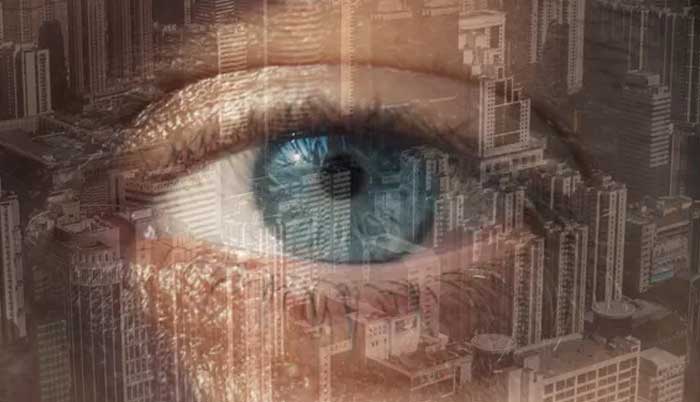![]() Home > Security & Privacy
Home > Security & Privacy
Americans Don't Want Phones Searched Without A Warrant

Someone, somewhere is keeping an eye on you. / Getty Images
![]() December 7th, 2017 | 11:08 AM |
December 7th, 2017 | 11:08 AM | ![]() 1096 views
1096 views
CNET.COM
Commentary: A new survey offers a fascinating view of how much privacy Americans are prepared to give up for national security.
Technically Incorrect offers a slightly twisted take on the tech that's taken over our lives.
The mere thought sends a shudder to many a traveler.
What if government officials demand access to your phone and everything that's in it?
Why, in February, then Homeland Security Secretary John Kelly suggested that US border officials would want social media passwords before allowing certain visitors into the country.
What if this extends to your local police force? Some have already insisted that cell phones should be unlocked and given to the police whenever a road accident occurs.
The Supreme Court is currently hearing the case of Carpenter vs. The United States. This concerns Detroit police tracking someone's whereabouts for four months without the person's knowledge, thanks to GPS data obtained from MetroPCS and Sprint.
What, though, do Americans think? A new survey asked 1,018 Americans of them. It was performed on behalf of ExpressVPN, which claims to be the "#1 Trusted Leader in VPN (virtual private networks)."
The results were moving. Fully 28 percent said that they're happy for government to snoop wherever, whenever and however, if it's for national security purposes.
On the other hand, 58 percent insisted that no government official should be allowed to collect metadata or the content of communications without a court-issued warrant.
Thirty-seven percent even deemed it an unreasonable tradeoff for government to use license plates to track movements. This is something quite a few cities have been doing for many years.
Oh, whom can you trust these days? With the likes of Google scanning every word of your email and smart speakers potentially listening to your every domestic conversation, can any organization be trusted?
Indeed, the survey asked which entities Americans trusted the least when it came to monitoring or reading their emails. The government was the least trusted. Next came Google, followed by internet service providers and, well, their employers.
People trust their employers more than they trust Google? That is some faith.
Google didn't immediately respond to a request for comment.
Whimsically, 6 percent of respondents said that they'd trust NSA leaker Edward Snowden with their data more than they would trust the NSA.
Of course, the law has constantly lagged behind technology. Vast tech companies have "moved fast and broken things," as Mark Zuckerberg was fond of saying, and then looked down like little children, wailing: "Oh, dear, mummy. What have I done?"
It was instructive to listen to Facebook's first president, Sean Parker, recently saying he feared what all Facebook's "moving fast and breaking things" has done to young minds. He raised concerns about its addictive nature and interference with productivity.
With cases such as Carpenter, judges are being asked to make far-reaching decisions with major implications for daily life, while simultaneously helping to pick up the pieces that fast-moving tech has left in its wake.
Many might think it a good idea if cell phones were deemed part of one's, well, essential being and therefore beyond unwarranted inspection.
As Chief Justice Roberts mused during the 2013 case of Riley vs. California: "The proverbial visitor from Mars might conclude they [cell phones] were an important feature of human anatomy."
If that's the case, then should any authority freely inspect or track one's phone without a warrant or, indeed, without the owner of the phone knowing?
The best many Americans might hope for in the future is to have detailed knowledge of what surveillance is being done, when and how.
A good bet is surely to assume that someone, somewhere can intercept your life at any time.
Source:
courtesy of CNET
by CHRIS MATYSZCZYK
If you have any stories or news that you would like to share with the global online community, please feel free to share it with us by contacting us directly at [email protected]